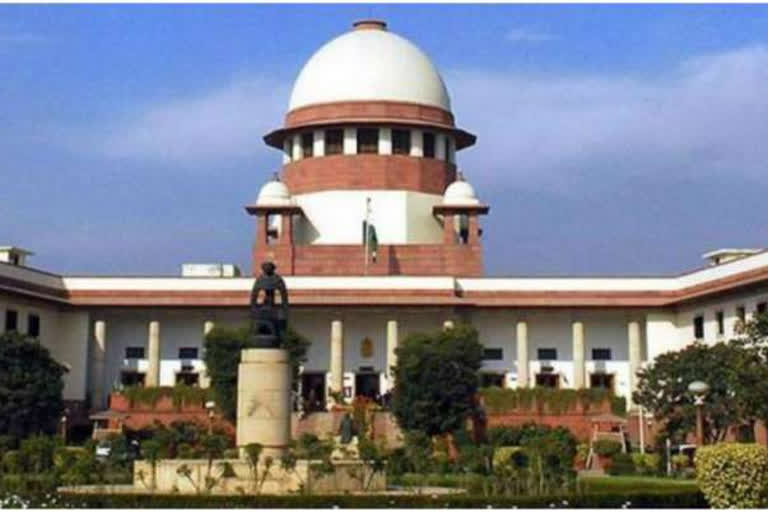New Delhi: The Supreme Court on Monday granted another four weeks time to states, which have not yet filed affidavits on a plea seeking directions to provide masks and sanitisers to the elderly amid the COVID-19 pandemic, to file their responses.
The matter came up for hearing before a bench headed by Justice Ashok Bhushan which had on August 4 directed that all eligible old age persons should be regularly paid pension and states should provide them necessary medicines, masks, sanitisers and other essential goods in wake of the pandemic.
The bench, also comprising Justices R S Reddy and M R Shah, was hearing a plea filed by former union minister and senior advocate Ashwani Kumar who has sought directions with regard to the elderly, saying they need more care and protection in this time of pandemic.
However the court today observed that entertaining every case is not possible under Article 32 and states should take care of such matters.
However the court today observed that entertaining every case is not possible under Article 32 and states should take care of such matters. "It is a big country," said the judges.
Also read:Why Rajnath Singh may have stopped in Iran while in transit from Russia
In its August 4 order, the apex court had said that looking at their vulnerability, the elderly should be given priority in admission in government hospital and in the event of any complaint made by them, the hospital administration shall take immediate steps to remedy their grievances.
The bench had said that the top court had already issued directions on December 13, 2018 in the matter and those directives were needed to be complied with by all concerned, including the states.
Kumar had earlier told the court that the elderly living alone are "worst sufferers" and they are not able to get medicines, masks, sanitisers and other essential goods. In its December 2018 verdict, the apex court had said that statutory rights of over 10 crore elderly persons in India must be recognised and implemented.
It had directed the Centre to obtain information from all states and Union Territories about the number of old age homes in each district and had also suggested a relook at the pension for the elderly so as to make it is more realistic.
Emphasising the social justice aspect, the apex court had said that state is obligated to ensure that right to live with dignity, shelter and health of citizens, including the elderly, are not only protected but also enforced.
The apex court had pronounced the verdict on the pleas by Kumar and one Sanjeeb Panigrahi. The court had noted in its 2018 order that the Centre had in 2007 fixed monthly pension of Rs 200 for persons between the age of 60 and 79 years and Rs 500 for those aged above 80.
Inputs from PTI
